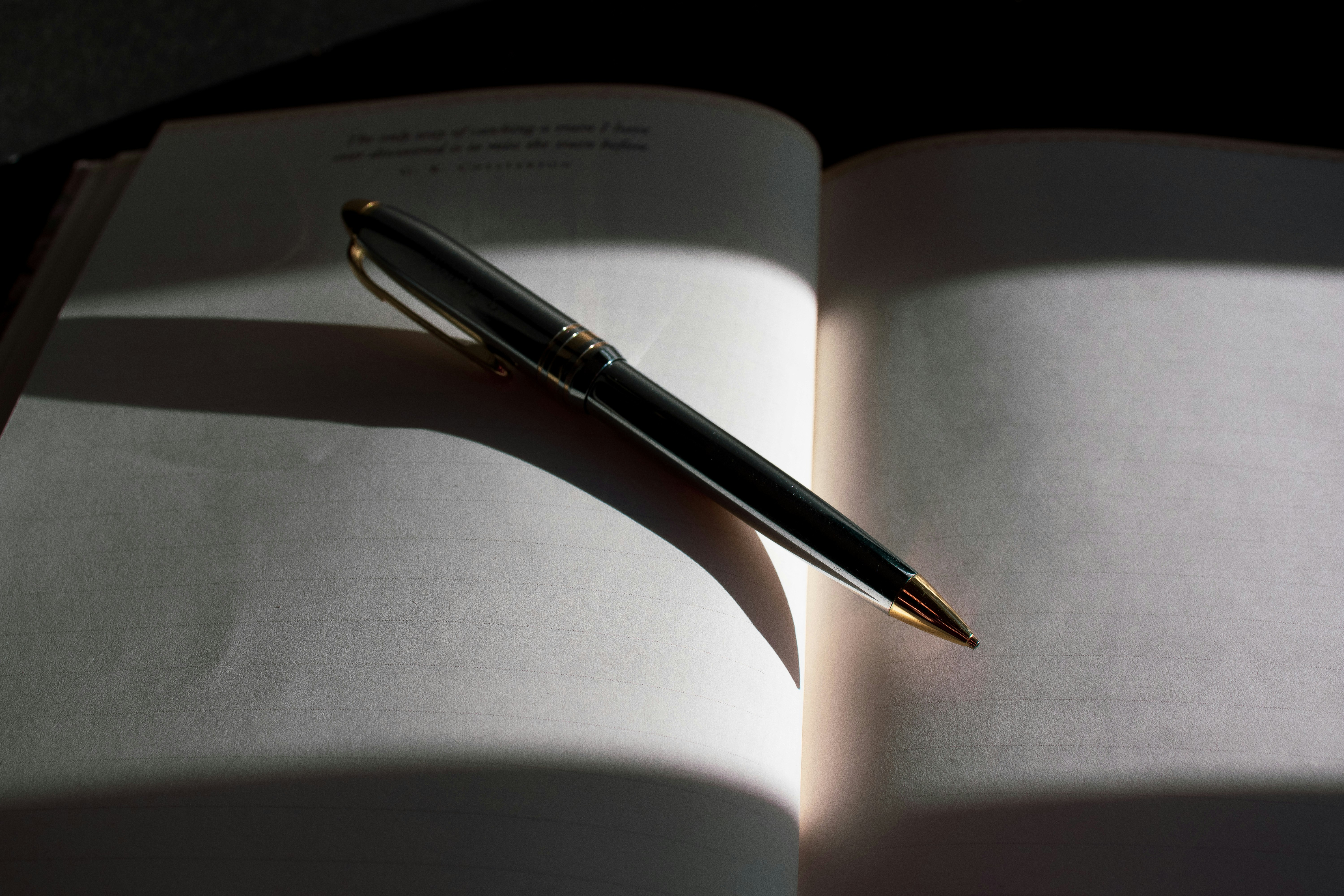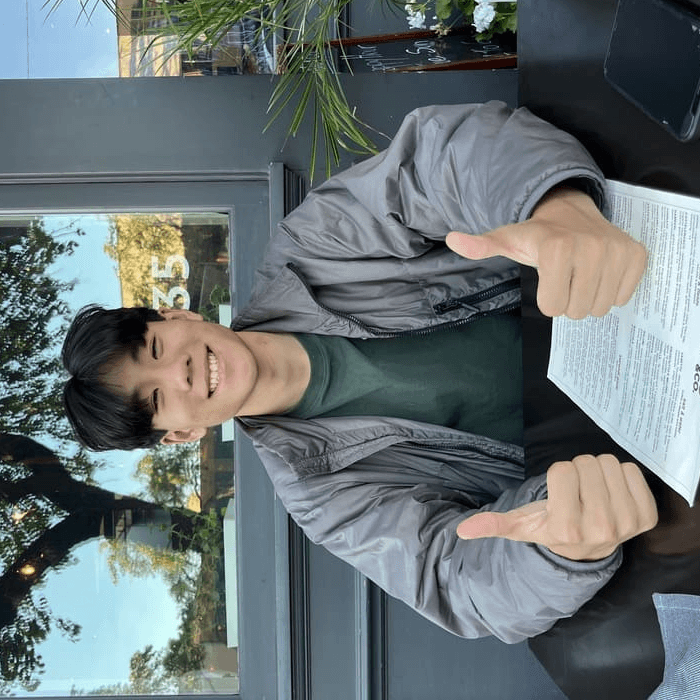< Back
A Student's Guide On How To Write A Conclusion For An Essay
Declan Gessel
Apr 18, 2024
Crafting an effective conclusion for an essay is essential to leave a lasting impression on the reader. Knowing how to write an essay conclusion can help you wrap up your arguments and provide a sense of closure. The final paragraph of your essay should not only summarize your main points but also leave the reader with food for thought or a call to action. Discover the best tips to bring your essay to a successful close!
Table of Contents
How To Write Different Types Of Essay Conclusions With Examples
How To Write A Conclusion For An Essay (Proofreading and summarizing)
Write Smarter Essay Conclusions With Jotbot — Start Writing for Free Today
Why Essay Conclusions Matters

The conclusion of an essay is a crucial part of the writing process. It's the final opportunity to make a lasting impression and reinforce your main points. The conclusion should not be a mere rehash of the other parts of the writing. Instead, it should offer new insights or perspectives. Carefully crafted conclusions can make your essay memorable and impactful.
Differentiating a Conclusion from a Summary
A summary should typically be avoided in a conclusion, as it can come across as repetitive and unoriginal. A proper essay conclusion should draw on the main points, but it should also offer a new angle or idea that helps to sum up your argument or persuade the reader. A summary is a simple recap, while a conclusion is an opportunity to leave a lasting impression on your reader.
The Rise of AI Writing Tools and Their Impact on Essay Conclusions
The rise of AI writing tools can have a significant impact on the way we approach essay writing. These tools have the potential to assist in crafting strong conclusions by suggesting new ideas or approaches that may not have been considered.
While AI can help generate content, it is essential to remember that the best conclusions will still come from human input and creativity. The impact of these tools on essay conclusions is yet to be fully realized, but they could help writers to expand their perspectives and come up with new insights.
Related Reading
• Argumentative Essay
• Essay Format
• Expository Essay
• Essay Outline
• Transition Sentences
• Narrative Essay
• Rhetorical Analysis Essay
• Persuasive Essay
The Building Block Of A Strong Essay Conclusion

Restatement of Thesis: Crafting a Cohesive Conclusion
Restating the thesis is a vital component of a solid conclusion. It reinforces the main argument, but you must rephrase it to prevent redundancy in your essay. By paraphrasing your thesis statement, you illustrate how your essay discussion has evolved while creating a sense of closure. This technique helps readers see your writing in a new light.
Summarizing Key Points: Lasting Impression, Strong Foundation
To create an effective conclusion, you should summarize your main arguments and supporting evidence. This summary allows you to remind readers of your most compelling points in a concise manner. By doing so, you help readers retain your key ideas and ensure they fully understand your case. This summary also sets a strong foundation for the conclusion, enabling you to make your closing statements with clarity and conciseness.
Leaving a Lasting Impression: End Strong, Capture Attention
To make a lasting impression in the conclusion, you need to consider various techniques. One such technique is highlighting the real-world significance of your essay's topic. This move will help readers see the practical implications of your discussion. Offering a call to action or thought-provoking question can engage readers beyond the essay's pages.
This strategy provokes critical thinking and encourages readers to explore the topic further. Ending with a powerful quote or image, if appropriate, can leave a lasting mark on readers. By using a poignant quote or image, you can emotionally resonate with readers and stress the importance of your argument. The goal is to leave a final, powerful impression on the readers of your essay.
How To Write Different Types Of Essay Conclusions With Examples

Expository Essay
In an expository essay conclusion, you should emphasize key takeaways and learnings. For example, when discussing the benefits of recycling, you could conclude by highlighting the impact of implementing recycling programs in reducing waste and conserving resources. This kind of conclusion helps reinforce the importance of the information shared in the essay.
Persuasive Essay
In a persuasive essay conclusion, the goal is to reinforce the call to action. For instance, if you are arguing in favor of school uniforms, you could conclude by emphasizing the benefits of adopting school uniforms to create a more focused learning environment and promote a sense of community. This kind of conclusion is essential, as it aims to leave the reader with a clear understanding of the action needed after reading the essay.
Argumentative Essay
In an argumentative essay conclusion, you should reiterate your original argument and demonstrate its strength. For example, when discussing social media's impact on mental health, you could conclude by emphasizing the importance of responsible use and promoting healthy online habits to protect mental well-being. This kind of conclusion helps drive home the thesis statement and shows the reader the significance of the argument presented in the essay.
Jotbot is your personal document assistant
Jotbot does AI note-taking, AI video summarizing, AI citation/source finder, it writes AI outlines for essays and even writes entire essays with Jotbot’s AI essay writer. Join 500,000+ writers, students, teams, and researchers around the world to write more, write better, and write faster with Jotbot.
Write smarter, not harder with Jotbot. Start writing for free with Jotbot today — sign in with Google and get started in seconds.
Related Reading
• Words To Start A Paragraph
• Essay Structure
• Types Of Essays
• How To Write A Narrative Essay
• Synthesis Essay
• Descriptive Essay
• How To Start Off An Essay
• How To Write An Analytical Essay
• Write Me A Paragraph
• How To Write A Synthesis Essay
Avoiding Pitfalls In Writing Conclusions For An Essay

When writing a conclusion for an essay, there are several common pitfalls that you should avoid.
One of the biggest mistakes you can make is introducing new ideas in the conclusion. Your conclusion should focus on summarizing and emphasizing key points, not introducing entirely new arguments.
Another pitfall to avoid is using weak endings. Cliches, vague statements, and overly emotional appeals can weaken your conclusion. A lack of closure can leave the reader with hanging questions. It's essential to leave your readers with a final thought or takeaway message, not more questions than answers.
By steering clear of these pitfalls, you can help ensure that your essay ends on a strong note.
Strategies for Restating the Thesis Without Simply Rephrasing the Introduction
When restating your thesis in the conclusion of your essay, you'll want to avoid simply rephrasing the introduction. To freshen up your thesis in the conclusion, try using different words, focusing on a key result, or connecting it to your essay's arguments. For example, consider briefly paraphrasing your thesis from a new perspective or with a final emphasis.
This can help reinforce your thesis and leave a lasting impression on your readers. Ditch overused phrases like "In conclusion" or "To summarize." Instead, opt for stronger alternatives like "In closing" or "Ultimately." By making these strategic choices in restating your thesis, you can craft a conclusion that truly resonates with your audience.
Offering Insight or Significance
In crafting a conclusion for your essay, it's crucial to go beyond summarizing your points and offer insight or significance. Explain the broader implications of your essay's argument and why it matters. By doing so, you can help your readers see the bigger picture and understand the lasting impact of your essay. This can add depth and richness to your conclusion, leaving a lasting impression on your audience.
How To Write A Conclusion For An Essay (Proofreading and summarizing)

Catch Typos and Maintain Clarity
Proofreading is a crucial step in the essay writing process. Typos and grammatical errors can significantly diminish the impact of your conclusion. It's essential to carefully review your conclusion to catch any mistakes that may distract your reader from your key points.
Ensure Smooth Flow
Another important aspect of proofreading is checking for smooth transitions and sentence structure. Your conclusion should flow seamlessly from the main body of your essay to provide a cohesive ending to your argument. By carefully reviewing your conclusion, you can ensure that it maintains the logical progression of your ideas.
Readability Check
One effective strategy for proofreading is reading your conclusion aloud. This technique can help you identify any awkward phrasing or clunky sentences that may disrupt the flow of your conclusion. When you read your conclusion aloud, pay attention to how the sentences sound and whether they effectively convey your key arguments.
Focus on Significance
The final reason to carefully proofread and summarize your conclusion is to highlight the significance of your main arguments and evidence. Your conclusion is your last chance to persuade your reader of the validity of your argument, so it's important to emphasize the importance of your findings. By summarizing the key points of your essay in your conclusion, you can help your reader appreciate the significance of your research and analysis.
Write Smarter Essay Conclusions With Jotbot — Start Writing for Free Today
Jotbot, the AI-powered writing assistant, offers a range of tools to help you write better, faster, and more efficiently. With Jotbot, you can tackle notes, video summaries, citations, and more, all with the power of AI. By signing in with Google, you can get started in seconds and make the most of Jotbot's capabilities.
AI Note Taking
Jotbot's AI note-taking feature allows you to record and organize your thoughts, ideas, and research in a structured and accessible way. By using AI technology, Jotbot helps you capture and categorize data quickly and efficiently, making sure you never lose important information again.
AI Video Summarizing
With Jotbot's AI video summarizing tool, you can condense long video lectures or presentations into key points and important details. By summarizing videos with AI, Jotbot helps you digest and understand new information faster, ensuring that you never miss a critical detail during a lecture or meeting again.
AI Citation/Source Finder
Jotbot simplifies the research process with its AI citation and source finder. By leveraging AI technology, Jotbot quickly locates reputable and relevant sources for your writing projects, ensuring that you have the most accurate and up-to-date information at your fingertips.
AI Outlines for Essays
Jotbot's AI outline writer generates clear and concise outlines for essays, research papers, and other writing projects. By utilizing Jotbot's AI-driven outline tool, you can save time and effort in organizing your thoughts and ideas, allowing you to focus on writing high-quality content.
AI Essay Writer
Jotbot's AI essay writer takes your ideas and notes and transforms them into well-structured essays. By harnessing the power of AI, Jotbot helps you draft compelling essays quickly, making sure that your writing is focused, coherent, and engaging.
Jotbot offers a suite of tools to help you streamline your writing process, generate high-quality content, and enhance your academic and professional writing projects.
Start writing smarter today with Jotbot and experience the benefits of AI-powered writing assistance.
Related Reading
• Critical Analysis Essay
• How To Write A Personal Essay
• Chat Gpt Essay Writer
• How To Write An Outline For An Essay
• What Makes A Good Thesis Statement
• Essay Writing Tools
• How To Write A 5 Paragraph Essay
• How To Write A Rhetorical Analysis Essay
• First Person Essay
• How To Write A Header For An Essay
• Memoir Essay
• Formula For A Thesis Statement
Write more, better, faster.
Your personal AI document assistant












